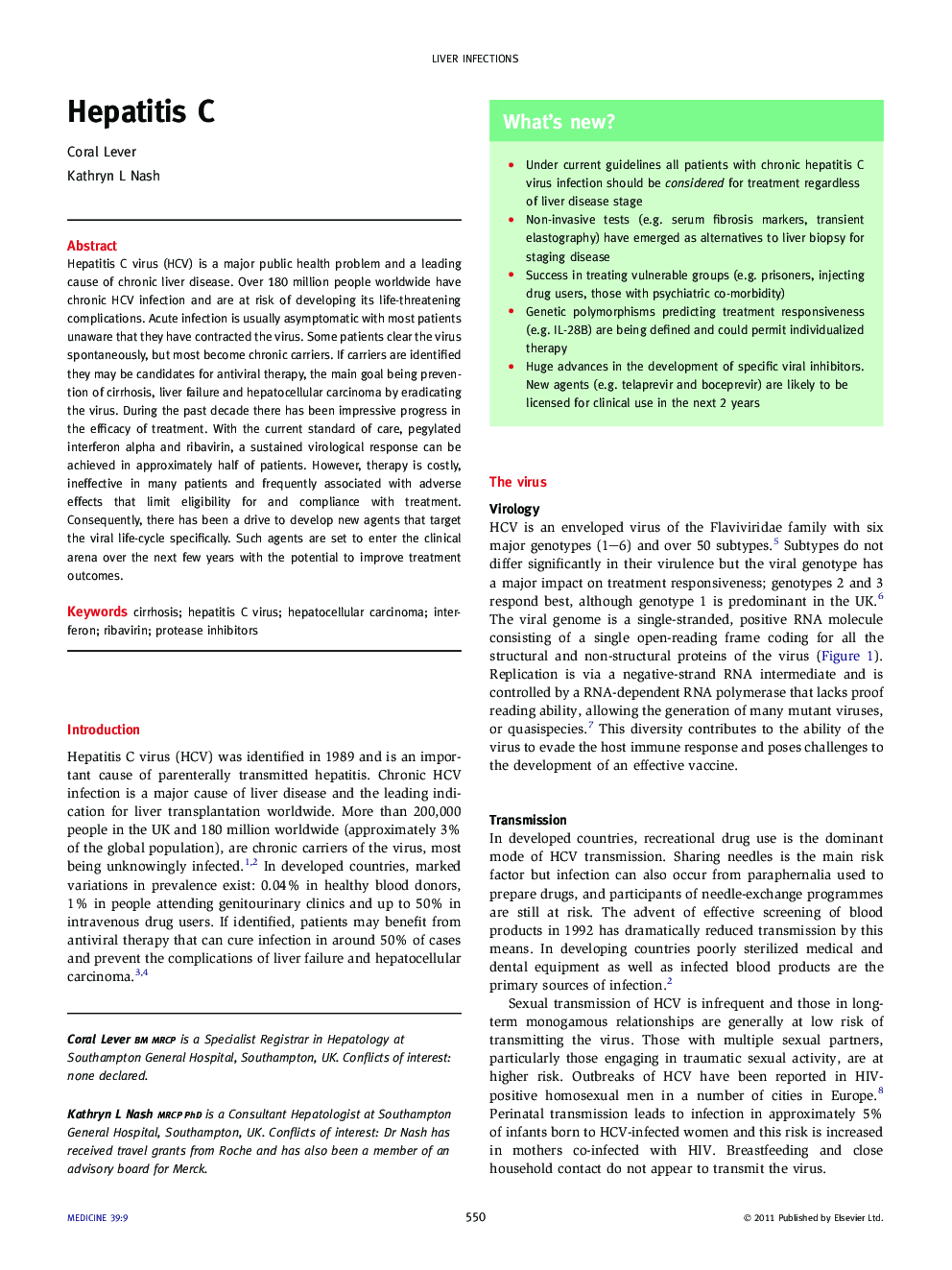| Article ID | Journal | Published Year | Pages | File Type |
|---|---|---|---|---|
| 3806998 | Medicine | 2011 | 6 Pages |
Hepatitis C virus (HCV) is a major public health problem and a leading cause of chronic liver disease. Over 180 million people worldwide have chronic HCV infection and are at risk of developing its life-threatening complications. Acute infection is usually asymptomatic with most patients unaware that they have contracted the virus. Some patients clear the virus spontaneously, but most become chronic carriers. If carriers are identified they may be candidates for antiviral therapy, the main goal being prevention of cirrhosis, liver failure and hepatocellular carcinoma by eradicating the virus. During the past decade there has been impressive progress in the efficacy of treatment. With the current standard of care, pegylated interferon alpha and ribavirin, a sustained virological response can be achieved in approximately half of patients. However, therapy is costly, ineffective in many patients and frequently associated with adverse effects that limit eligibility for and compliance with treatment. Consequently, there has been a drive to develop new agents that target the viral life-cycle specifically. Such agents are set to enter the clinical arena over the next few years with the potential to improve treatment outcomes.
